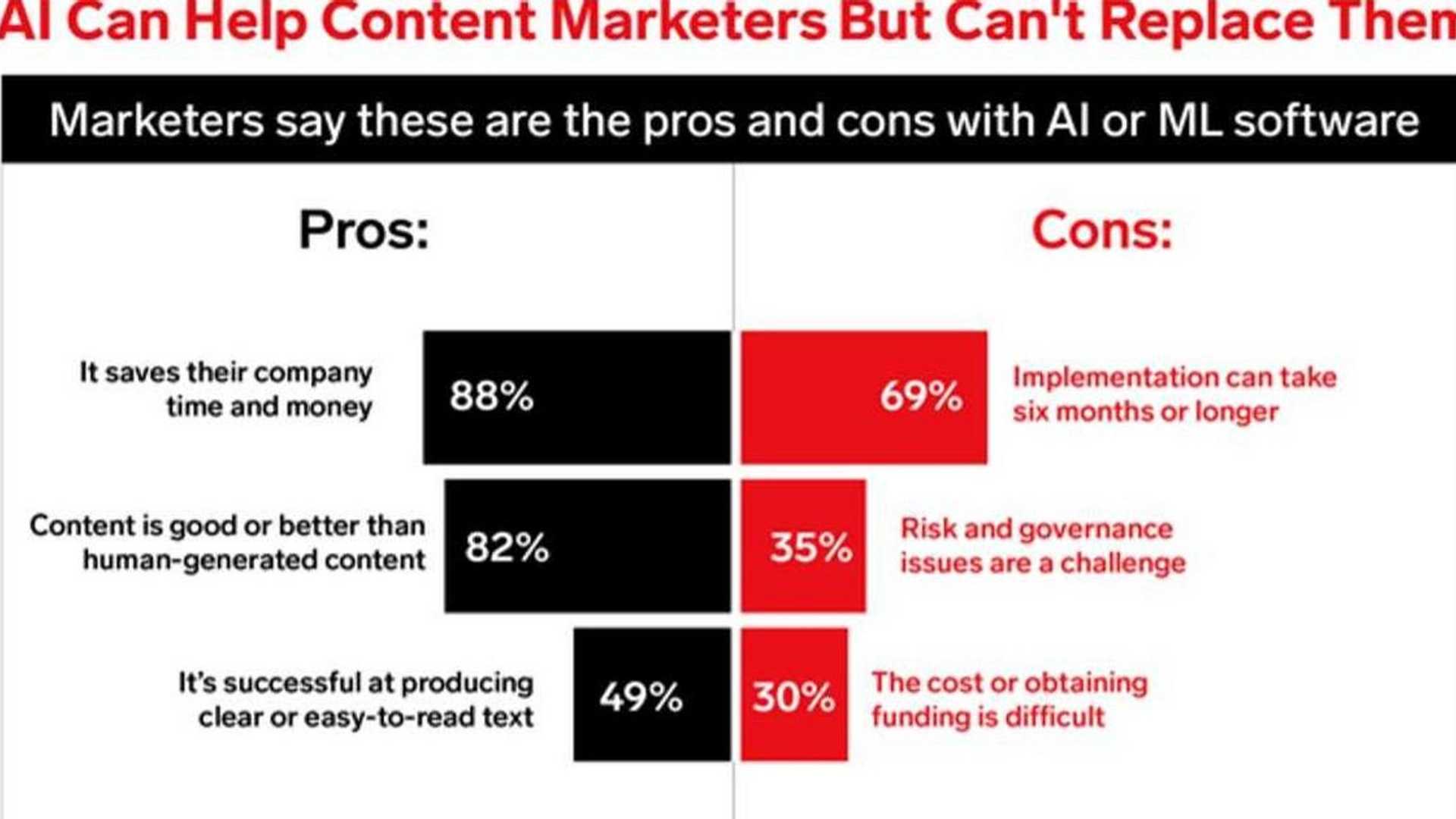ChatGPT and Generative AI in Content Marketing: How to Prepare
The use of generative AI tools such as ChatGPT and DALL-E2 can be beneficial for marketers. These AI tools can help provide creative ideas, save time, and even generate imagery and video content. However, it is important to recognize that the use of AI tools can also present risks such as inaccuracies, copyright infringement, and plagiarism.
Despite these risks, generative AI has the potential to revolutionize content marketing. Its impact can be seen in several areas, including ideation, saving time, and generating content. According to a recent 2022 Aira survey of marketers worldwide, 58.9% stated that they already used AI tools to optimize existing content.
The most effective ways ChatGPT and other generative AI tools have enhanced content is through repurposing it to create related content, personalizing it by tracking buyer and customer behavior, creating high-ranking content by generating millions of competitive keywords, and testing content to determine which yields the best results.
However, despite the promise of generative AI, only 13% of marketers in the Aira survey believe that AI content is already indistinguishable from human content. As a result, it is unlikely that generative AI will be able to replace content marketers, particularly when it comes to creating original, brand-specific, authoritative, and publish-ready content.
Preparing for ChatGPT and Generative AI in Content Marketing
In order to fully capitalize on the use of ChatGPT and other AI tools for content creation, it is recommended that marketers craft a content strategy, leverage the right resources, test for performance, do proper research, and add in the human element whenever possible.
Marketers should have a clear understanding of their target audience and create content that resonates with them. They should also ensure that the content is original, relevant, and adds value to their audience. Using generative AI tools to repurpose existing content and personalize it can also be an effective strategy.
It is also crucial to test the performance of content generated by AI tools. This can help marketers identify what works best and what needs improvement. Additionally, marketers should ensure that they are using AI tools ethically and legally, avoiding any copyright infringement or plagiarism issues.
Finally, while AI tools can save time and provide valuable insights, it's important to remember that the human element is still critical in content marketing. Therefore, marketers should aim to strike a balance between AI-generated content and content created by humans.
In conclusion, while generative AI tools like ChatGPT can be a valuable addition to a marketer's toolkit, it is important to recognize the potential risks that they present. To prepare for the use of AI tools in content marketing, marketers should have a clear strategy, leverage the right resources, test for performance, conduct proper research, and add in the human element whenever possible. By doing so, they can fully capitalize on the benefits of generative AI while minimizing the risks.




















